8 Practical Ways to Maximise Wonderful Energy with Feng Shui
Feng Shui is a 3000-year-old ancient Chinese belief system of harmonising everyone to their surroundings. It understands that our environment is a reflection of our internal energy and teaches us how to balance energies in key settings like your home or office.

There are many Feng Shui rules teaching us the ways to build or arrange spatial elements to positively affect our prosperity, happiness and promote good energy flow. A fundamental concept of Chinese philosophy is the notion that individuals have their own Qi (pronounced ‘Chee’) or energy. External objects like buildings and the objects within them also have their own life force that can interact and affect your Qi. It’s important to keep your energy flow unconstrained by removing negative energy (bad Feng Shui) and creating an oasis of harmony and balance.
The concept of Feng Shui may seem a little esoteric or pseudoscientific, but these conventions are firmly based on common sense - very similar to spring-cleaning to make your home more organised. In fact, Feng Shui can increase the sale price of your home with practical applications of layout and design that naturally invite a higher calibre of real estate value.
Strategic positioning and analysis of objects around you through Feng Shui offers practical solutions to inherent problems that you may be experiencing in your home. Feelings of worry, uncomfortableness and laziness can easily be remedied with altered placements of your decor and the simple addition of things like art and mirrors.
This harmonising system also centres around a few more concepts that we will see in various Feng Shui rules. Yin and Yang is a prominent concept where yin is considered the feminine, cold and dark; and yang is masculine, hot and light. The five elements of water, fire, wood, metal and earth are also contemplated and are used as the descriptors for interactions around us. Numbers also serve a symbolic purpose, the most auspicious being the number 9 representing achieving the highest accomplishment, contentment in success and gratitude. Number 8 is also highly favourable, representing infinite abundant energy and a never-ending flow of many blessings. Logically, here are 8 Feng Shui practises to make your home a haven of balance, harmony and good Qi.

1. Slow down the flow of Qi
Qi moves like water through your space. Water can rush like a river or slow like a trickle - nourishing and hydrating the things it touches. If the front entrance of your home is directly aligned with the back door, Qi moves through the space too quickly and escapes. If this layout is present in your space, do not stress. Feng Shui is practical and provides simple cures for this. Qi should move in an even, graceful way. Redirecting the flow of energy with a patterned rug on the floor, artwork on the walls or even a round entry table can slow the Qi and redirect it through the home. Round tables directly in the flow between the front and back doors will redirect and slow the Qi. Circular tables are the most beneficial shape for entry tables and even dining tables due to their flowing shape evenly distributing energy - representing abundance with no end.
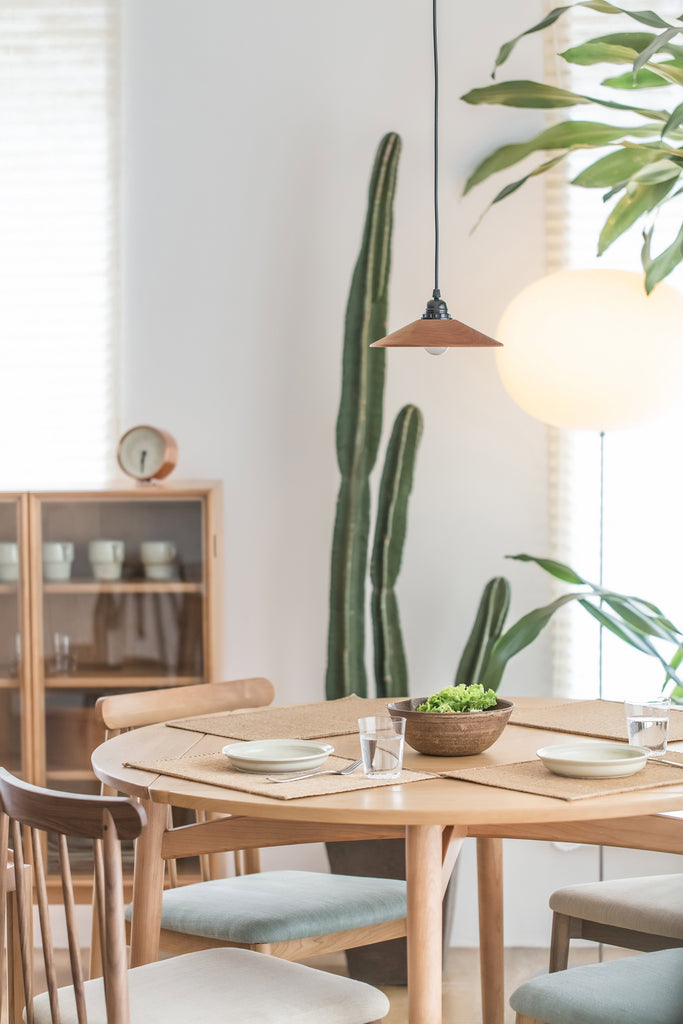
2. Get Rid of Clutter
Feng Shui emphasises a happy and healthy environment over having a perfectly-styled home. Clutter is not only aesthetically displeasing but also disrupts the flow of Qi - creating negative energy. We are all guilty of holding onto trinkets and objects not serving a beautiful or functional purpose. Laura Benko, author of The Holistic Home says, “clutter stops us from having clarity of thought and can weigh us down emotionally.’ Having too many possessions suggests you are holding onto the past and can drain your internal energy - this doesn’t necessarily mean your house must only have the bare minimum but instead be organised and only hold onto the things you absolutely love and need. Implement efficient organisation systems for your space baskets for your keys and phone or a bookshelf to store papers potentially cluttering your desk. Practically, organisation even without adoption of Feng Shui leads to a lighter mind, more efficient and less scattered.
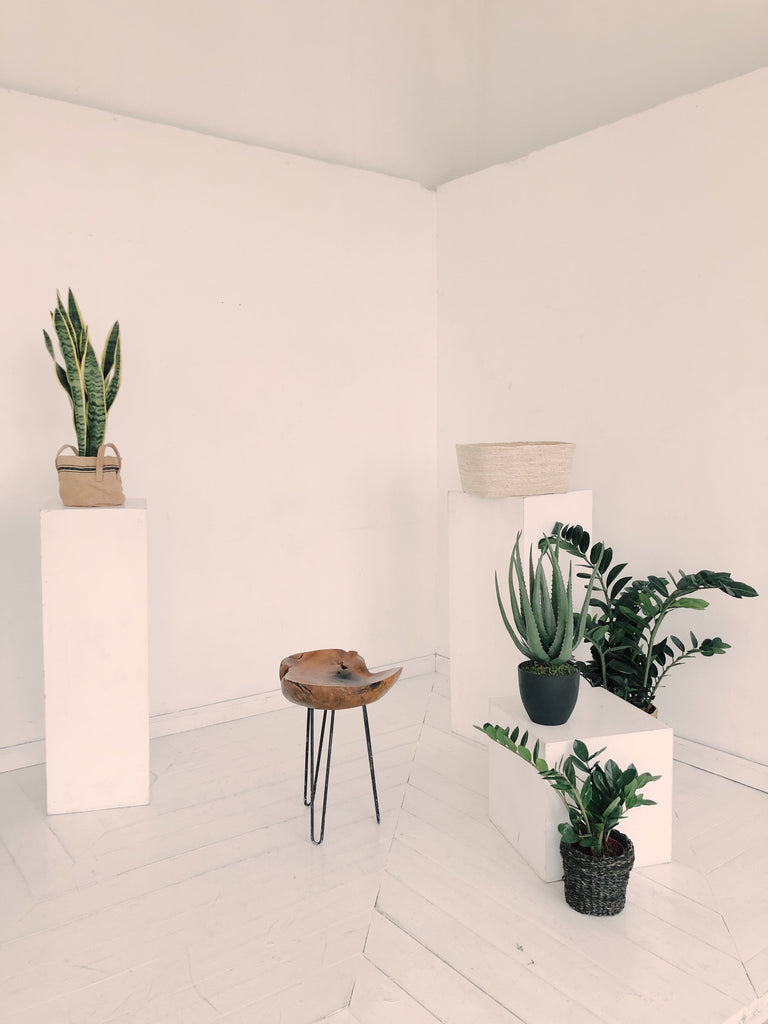
3. Long, Narrow Hallway
A long and narrow hallway because Qi rushes through it but is also stagnant in such a limited width. Bringing good energy to a stagnant space with bright and vibrant artwork can redirect the Qi and create a sense of natural flow. Avoid arranging artwork or prints in a straight line, however, position them in an interesting, creative way inviting your guests on a visual adventure. Mirrors also encourage ambience and light in dim or limited spaces. According to expert, Laura Cerrano, “mirrors have the capability to ‘expand a room’ by making it look and feel bigger… Just be mindful of what the mirror is reflecting, as it doubles the energy of whatever it sees.”
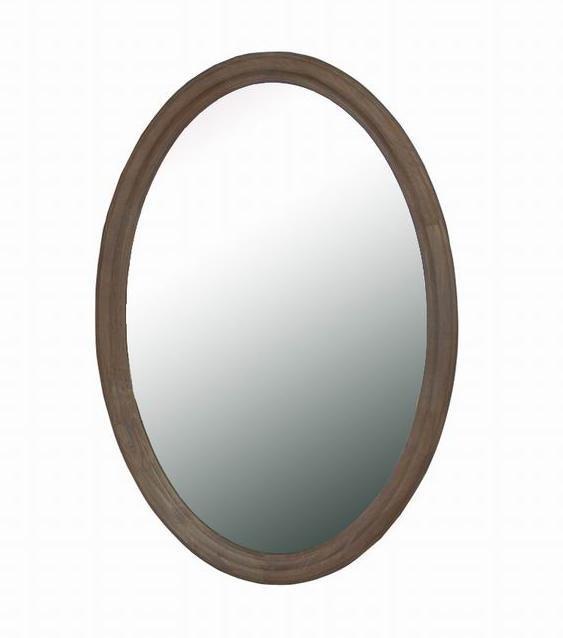
whitewash oval mirror
4. Balance Elements
The aforementioned five elements are water, earth, fire, wood and metal. These can physically be in the home with something simple like a wooden chair or bringing in the water element with a glass vase or aquamarine tones. Like yin and yang, Feng Shui is about striking a balance in your home to achieve peace and harmony. Balancing all five elements is important so look for literal and symbolic representations of these elements. For example, if you lack motivation, try and decorate with a fire element like a red ottoman or orange artwork. Similarly, if frustration affects your internal Qi, avoid fire elements - these could be showing up in your home and causing an imbalance in your life.
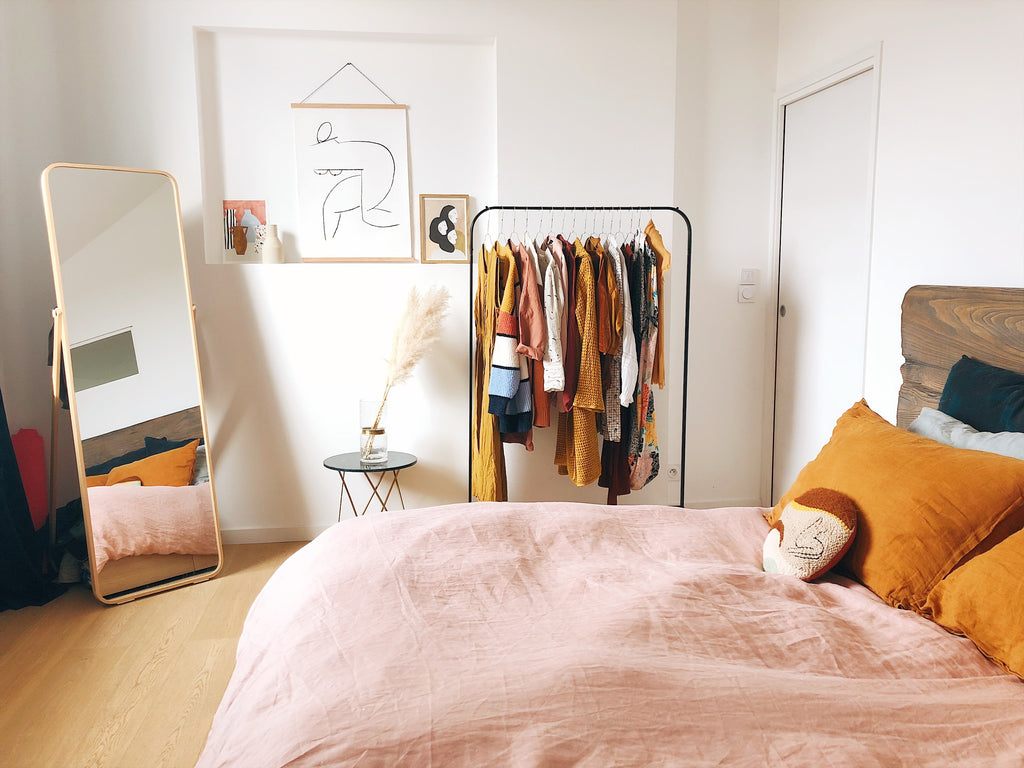
5. Feng Shui Fountain
In Chinese philosophy, the water element represents wealth. If this sect of prosperity is important to you, consider placing a fountain around the main entrance of your house - this can be either inside or just outside. If possible, the water flowing from the fountain should face your home allowing wealth to pour into your life.

6. The Feng Shui Commanding Position for your Desk
Many people often face their desk towards their window for a beautiful source of light and a view, in Feng Shui however it is critical to be aware of the Feng Shui commanding position, where you can see the door to your study or office and have a solid wall behind you to provide more backing for your thoughts and gives your presence authority. Having a clear vision of your door allows you to see who enters through it - giving you control and stability. A wooden desk is optimal for bringing natural energy that nourishes the space and brings vitality.
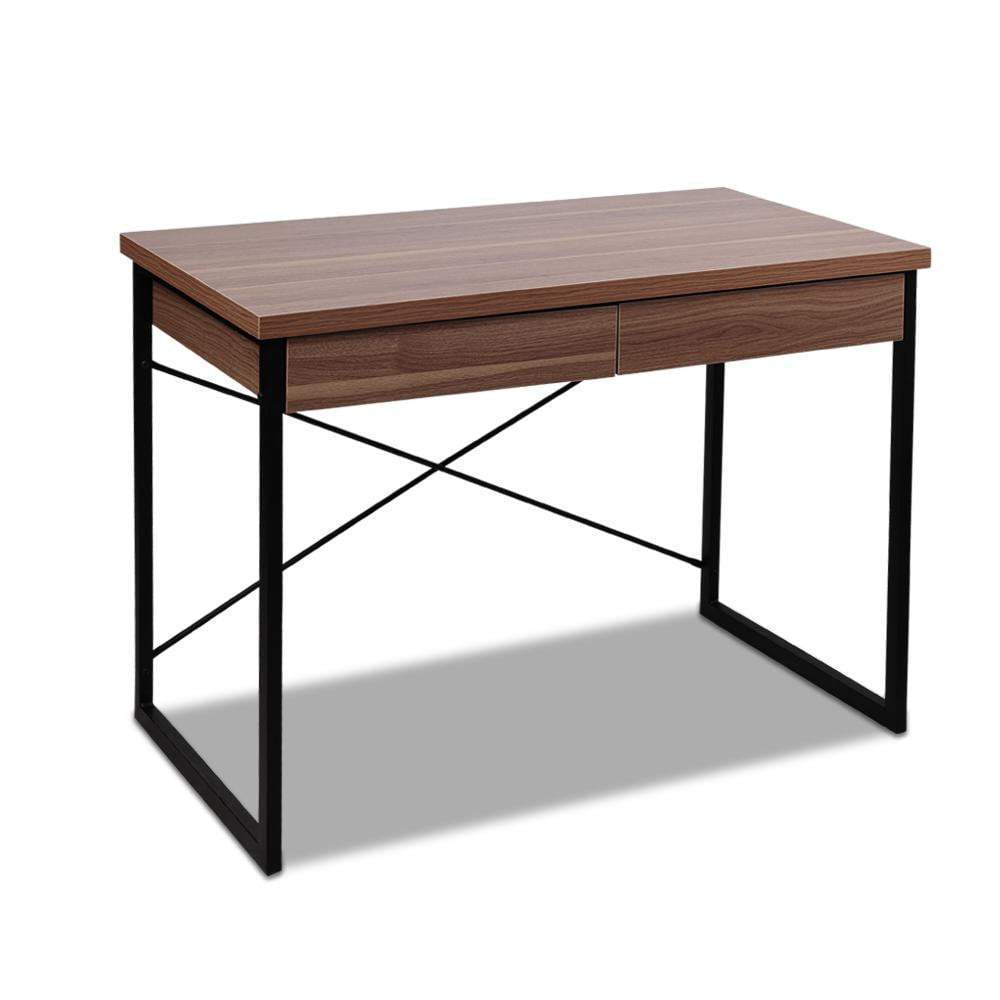
metal desk with drawer - walnut
7. Heavy Objects Above You Can Cause Anxiety
If you have a large light fixture above you in your living room or kitchen, you could be experiencing an unnatural worry from it. Even if a large lighting fixture like an elaborate chandelier is securely attached it may subconsciously concern or distress you - negatively affecting your Qi. If you cannot move the fixture, move your bed, chair or couch away from underneath the fixture, this will help alleviate the stress. If possible, opt for subtle pendant lights to add illumination to your space.
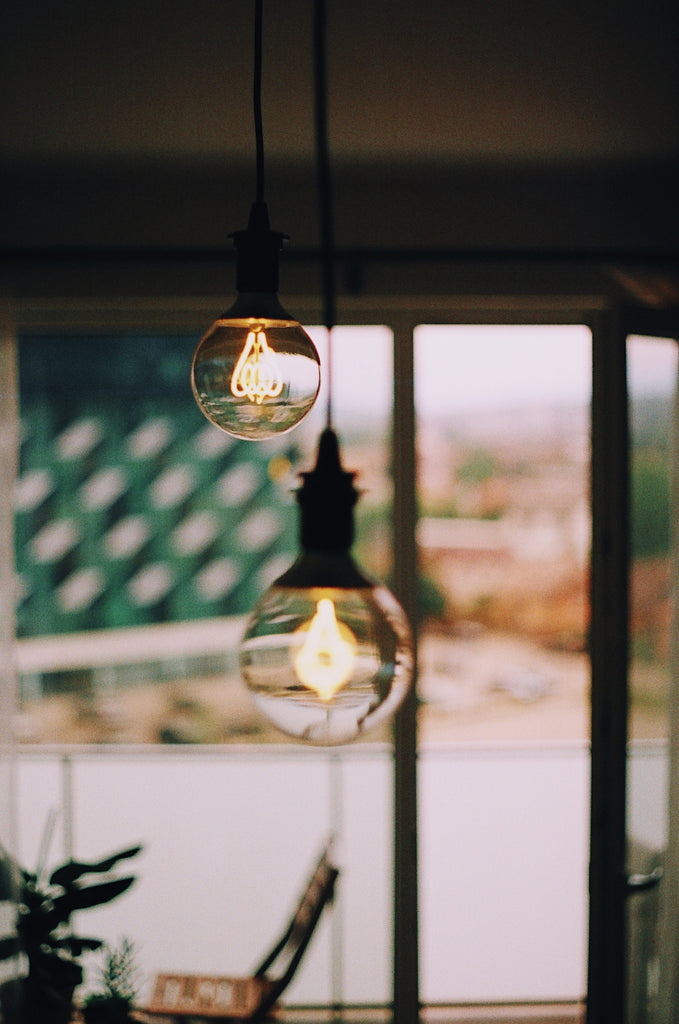
8. Slanted Ceilings Create Downward Energy
Slanted ceilings inherently are uneven and harbour energy for those sitting underneath. If you cannot rearrange furniture so it’s not underneath this ceiling, try adding plants to lift the Qi or an upward-facing light in the lowest corner of the slant, countering and lifting the downward energy.
These are only but a few of the many simple Feng Shui cures for negative features affecting Qi. The aims of these solutions are to encourage excellent and balanced energy flow. Feng Shui embraces adaption in the ability of your home to adapt and reflect your inner Qi.
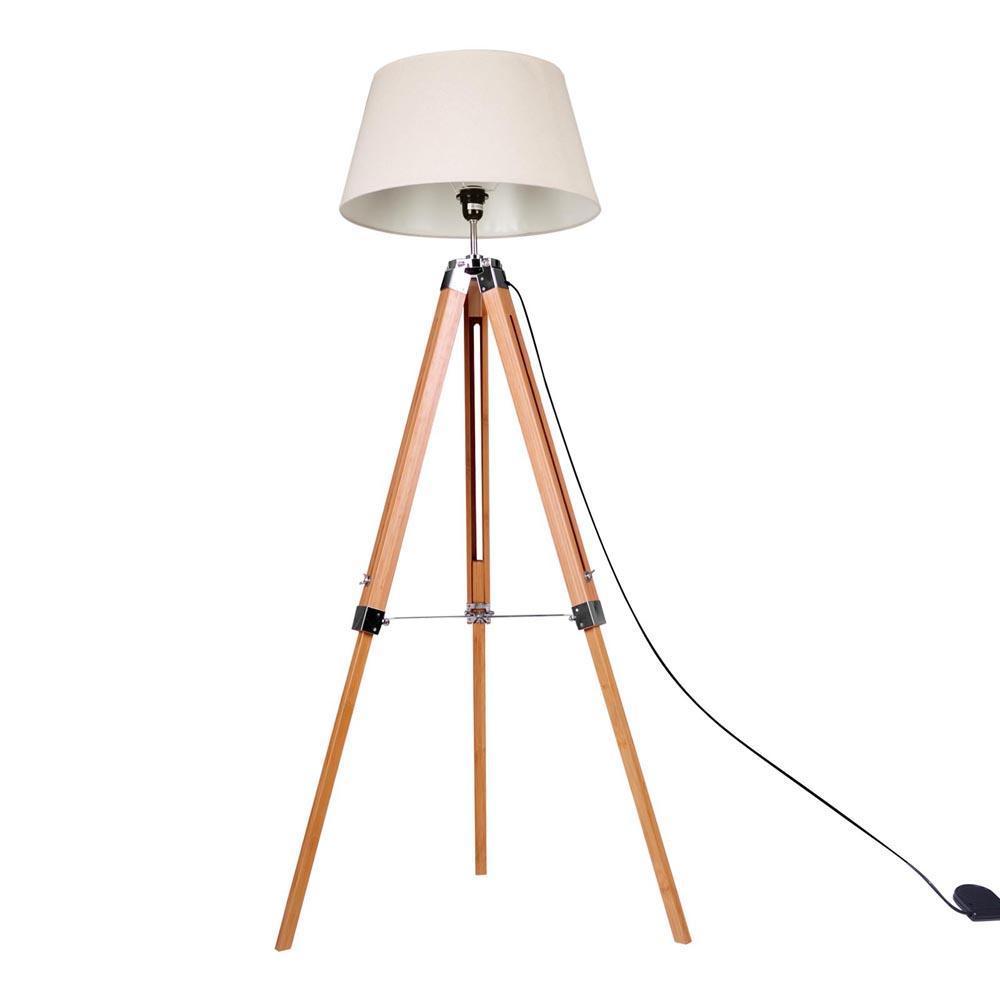
bamboo wooden floor lamp